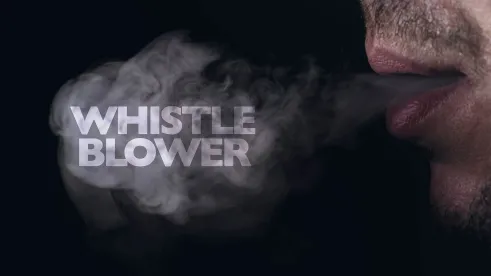In recent months, the U.S. Securities and Exchange Commission (“SEC” or the “Commission”) has issued two historic awards to whistleblowers who provided original information that enabled the SEC and other agencies to bring enforcement actions. On May 5, 2023, the SEC announced that it had awarded nearly $279 million to a single whistleblower whose information led to successful enforcement actions by the SEC and two successful related actions brought by other agencies. Then, on August 4, 2023, the SEC announced payment of more than $104 million to seven whistleblowers, whose joint efforts led to successful enforcement actions. The May award is the largest award in the history of the SEC’s whistleblower program, topping the previous record of $114 million, while the August combined award is the fourth largest.
The SEC Whistleblower Incentive Program
The SEC Whistleblower Incentive Program (the “Program”) went into effect on July 21, 2010, with the adoption of the Dodd-Frank Wall Street Reform and Consumer Protection Act. Under the Program, an individual who voluntarily provides information to the SEC regarding violations of any securities laws that leads to a successful civil enforcement action that results in over $1 million in monetary sanctions is eligible to receive an award of 10–30% of the fines collected.
In September 2020, the Commission passed amendments to the rules implementing the Program that create a presumption that a whistleblower will be awarded the statutory maximum of 30% of monetary sanctions collected in the relevant SEC enforcement action if it results in an award of $5 million or less and certain negative award factors are not present. Historically, approximately 75% of awards given out in the Program have been from sanctions of $5 million or less. In contrast to other whistleblower laws, such as the False Claims Act, awards paid to SEC whistleblowers do not come directly from defendant companies. Rather, they come from the SEC Investor Protection Fund, which is funded by monetary sanctions paid to the SEC by securities laws violators.
The SEC started accepting tips under its whistleblower program on July 22, 2010. Since then, apart from a dip in 2019, the number of tips submitted to the SEC Office of the Whistleblower has steadily increased. In Fiscal Year 2022, the Commission received over 12,300 tips, the largest number of whistleblower tips received in a single year since the establishment of the Program. To date, the SEC has issued over $1.3 billion in monetary awards to whistleblowers whose tips have resulted in over $5 billion in monetary sanctions.
Not all individuals who provide information to the SEC qualify as “whistleblowers” for the purposes of the Program. Dodd-Frank defines a “whistleblower” as “any individual who provides, or 2 or more individuals acting jointly who provide, information relating to a violation of the securities laws to the Commission.” To be eligible for an award, a whistleblower must provide information to the Commission voluntarily and the information must be original. A submission is voluntary when the whistleblower submitted it before receiving “a request, inquiry, or demand that relates to the subject matter” of the submission and was issued by the SEC or in connection with an investigation, inspection, or examination by Congress or another specified authority. To be deemed original, information provided to the Commission must:
- Be derived from the whistleblower’s independent knowledge or analysis;
- Not already be known to the Commission from another source, unless the whistleblower is the information’s original source; and
- Not be exclusively derived from “an allegation made in a judicial or administrative hearing, in a governmental report, hearing, audit, or investigation, or from the news media,” unless the whistleblower is the source of the information.
The Program also wholly or qualifiedly excludes from whistleblower eligibility specific categories of individuals, including those in certain domestic or foreign governmental roles; those who are officers of the relevant company; and those who committed crimes in connection with their obtaining or submitting information.
What We Know About Recent Whistleblower Awards
The Commission is prohibited from disclosing any information that could reasonably be expected to lead to the identification of a whistleblower. We therefore know relatively little about the recent awards.
The whistleblower who received the $279 million May award provided information that “expanded the scope of misconduct charged,” though their information did not prompt the opening of the Commission’s investigation. The Commission further determined that two related actions that were brought by other agencies were also based in part on information provided by the whistleblower. The whistleblower’s cooperation with other agencies and the additional successful enforcement actions increased the size of the award. Two other individuals submitted applications to be paid as whistleblowers in this case but were denied. Under the SEC’s whistleblower program, these individuals can appeal their award denial and, if they do, the successful whistleblower will have to wait for a decision in the appeal before being permitted to collect the award.
The seven whistleblowers who received the $104 million August award were composed of two sets of joint claimants and three single claimants. These seven individuals each provided information that either prompted the opening of or significantly contributed to the SEC investigation. They assisted the SEC by providing documents supporting their allegations of misconduct, identifying potential witnesses, and sitting for interviews.
Takeaways
These recent nine-figure awards demonstrate the success of the SEC’s whistleblower program. While the SEC did not disclose the total monetary sanctions collected in its recent enforcement actions, reports have indicated that the $279 million award was issued in connection with $1.1 billion in sanctions against Ericsson, a Swedish telecommunications company. The $104 million combined award, meanwhile, could at most represent 30% of the proceeds collected through the SEC’s enforcement action and related actions. Without whistleblowers providing information to bolster the SEC’s finite resources, such enforcement actions would be much more difficult, if not impossible, to bring successfully. The Program thus remains a crucial tool in fighting financial misconduct and ensuring corporate transparency.
Such large awards are likely to result in an increase in tips and, potentially, an increase in investigations and enforcement actions. Retaining an experienced SEC whistleblower lawyer can protect your career, and increase the chances that your tip will be investigated and that you will receive an award. The Program allows whistleblowers to submit information anonymously and minimize the potential for career harm. To do so, however, whistleblowers must obtain counsel, who can submit the information on their behalf. Experienced legal counsel can also ensure that information is presented to the SEC correctly and in a way that minimizes risks to the whistleblower while maximizing the potential for a successful enforcement action and award.



 />i
/>i

